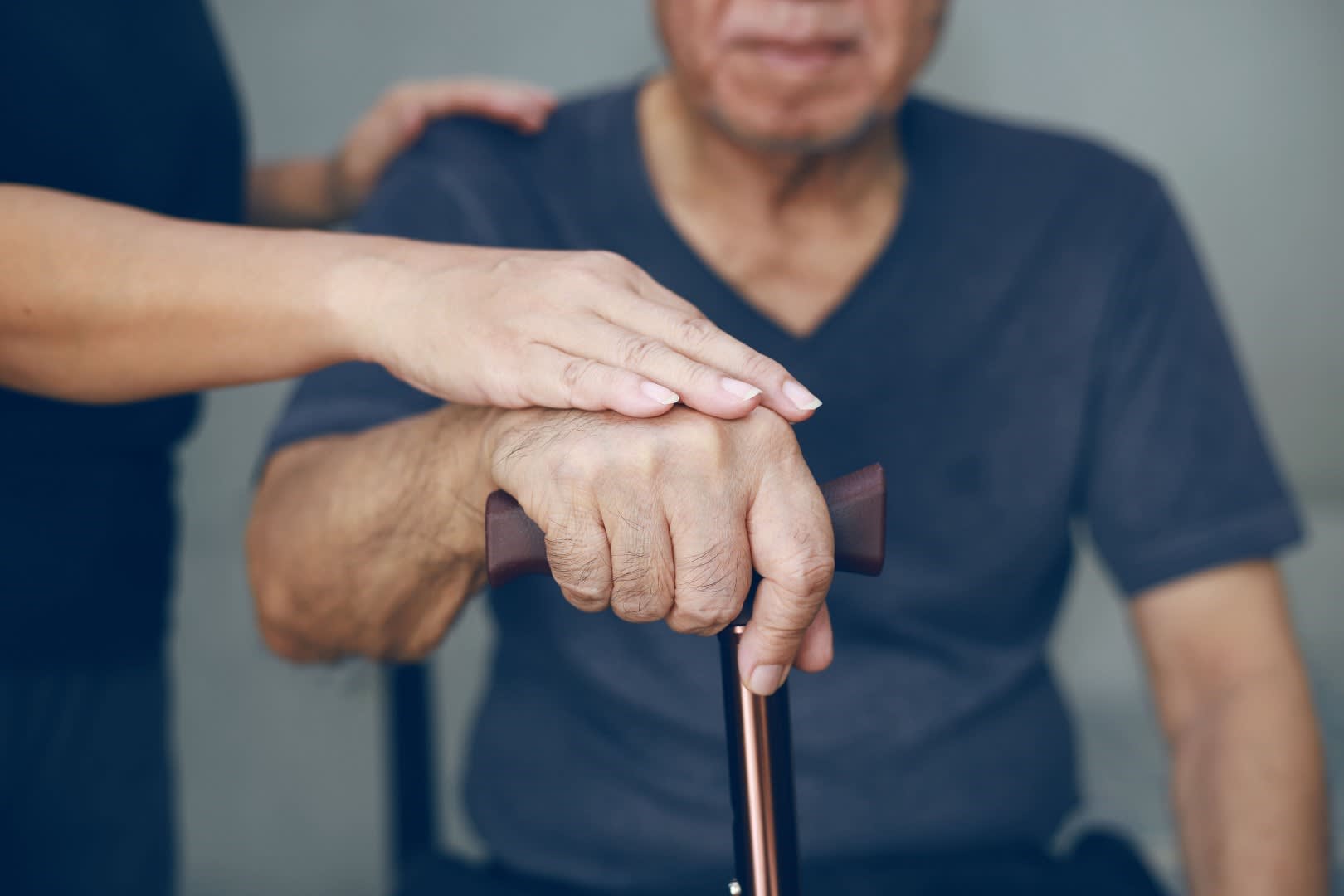
Encouraging Autonomy in the Elderly: Tips and Benefits

Posted on August 7, 2024
When you think about the well-being of elderly individuals, does the ability to make their own choices come to mind? Just as you wouldn’t want your personal choices taken from you, older adults relish retaining some control over their lives. Their sense of autonomy is deeply linked to their overall happiness, fostering a positive mental state and contributing to their quality of life.
Autonomy dramatically enhances the dignity and self-worth of seniors. Think about a grandfather who proudly tends to his flower garden. The act isn’t merely about horticulture; it’s about preserving a skill and celebrating personal achievement.
Likewise, a grandmother might derive immense joy from preparing her favorite recipe for the family, reinforcing her sense of identity and worth.
When seniors are included in decisions about their care, whether it’s structuring their medication schedule or selecting which physical activities suit them best, the positive impact on their sense of self is unmistakable. Allowing them to be involved in these daily choices creates a bridge to a sense of self and fosters a feeling of individual importance.
This blog post will explore the benefits of independence and provide tips to encourage autonomy in the elderly.
Understanding the Sense of Autonomy
 A sense of autonomy refers to the ability of an individual to make their own choices and have control over their own life. For seniors, maintaining this sense is crucial since it influences their overall happiness and quality of life.
A sense of autonomy refers to the ability of an individual to make their own choices and have control over their own life. For seniors, maintaining this sense is crucial since it influences their overall happiness and quality of life.
For an older adult, being able to make simple choices like what clothes to wear, what foods to eat, or how to spend their leisure time can significantly affect their mood and mental health. Without this autonomy, the elderly can feel diminished or even invisible, which might lead to depression or anxiety. Many residents in assisted living settings experience enhanced well-being when they are empowered to make decisions about their daily routines.
Providing autonomy in daily activities greatly impacts the dignity and self-worth of elderly individuals. For example, one elderly person might take pride in cooking their own breakfast, symbolizing not just a meal but a preserved skill and personal achievement. Another might cherish the ability to garden, nurturing plants just as they’ve nurtured relationships and memories throughout their life. These activities give them a sense of purpose and accomplishment.
When seniors participate in making decisions about their daily care, whether it’s choosing their medication schedule or deciding on their physical activities, it allows them to feel respected and valued. You wouldn't want your own decisions taken away, right? Thus, autonomy builds bridges to a sense of self and a feeling of importance.
Benefits of Encouraging Autonomy in Elders
Reducing Symptoms of Depression and Anxiety
Research consistently underscores the positive impacts that autonomy can have on mental health among older adults. A recent study found that decreased functional independence increased the risk of depression in elderly individuals. People who have some kind of independence in daily activities and decisions have a greater sense of control over their lives, which is linked to better mental well-being.
Moreover, autonomy encourages a proactive approach to managing their own health, which can lead to better outcomes overall. Think about how empowering it can be for an elderly person to choose their preferred activities or decide on their own healthcare options. Such opportunities foster a sense of agency and self-efficacy, which are crucial for mental resilience.
Promoting Sustained Physical Health
Physical health also sees remarkable improvement when autonomy is encouraged. Studies indicate that seniors who retain control over their daily routines are more likely to engage in physical activities, whether it's a morning walk, yoga, or even light household chores. This engagement is directly correlated with improved physical health. They maintain mobility, strength, and cardiovascular health much longer.
Besides, participating in physical activities as per their choice increases adherence to, and enjoyment of, these routines. You can see how simple yet significant choices in daily exercise can improve an elder’s overall well-being and prevent common age-related physical decline. This relationship between autonomy and aging should not be underestimated; it’s a key driver in promoting sustained physical health benefits.
Fostering Social Connections
Social connections are another critical area positively influenced by autonomy. When elders are empowered to make their own decisions, they often feel more confident and are more likely to engage in social activities and interactions. A sense of control over their social life can lead to more meaningful relationships and a supportive community network.
Research has shown that having a robust social network is associated with lower rates of loneliness and isolation, which are common concerns as people age. Imagine the difference it makes when an elderly individual can choose to join community events, nurture relationships with peers, or simply host family gatherings. These interactions not only provide emotional support but also revitalize their social engagement. By encouraging autonomy, you are actively ensuring that the elderly feel connected and integral to their communities, thereby enhancing their overall life satisfaction.
Strategies for Promoting Autonomy in Elder Care Facilities
At our CILA care facilities, we take numerous practical steps to promote autonomy in elder care facilities, ensuring older adults experience a sense of control and self-worth.
 1. Designing Personalized Care Plans
1. Designing Personalized Care Plans
One major approach is the use of personalized care plans. By tailoring care to meet the unique needs and preferences of each resident, we empower them to participate actively in decisions about their own care.
Each plan is created with the resident's input, focusing on their goals, preferences, and values, which helps them feel more involved and respected.
Additionally, we provide opportunities for residents to engage in activities they enjoy and are passionate about, such as gardening, painting, or cooking, which not only fosters a sense of independence but also helps maintain their cognitive and physical functions. Personalized care planning reinforces the idea that their choices are central to their well-being.
2. Providing Choices in Daily Routines
Providing choices in daily routines further strengthens autonomy in older adults. From meal options to bedtime schedules, availability of varied social activities, and even the layout of their room, offering choices helps residents feel like their preferences matter. For example, instead of having a fixed menu, residents can select from a range of nutritional meals that cater to their dietary needs and tastes. This simple freedom of choosing what to eat can significantly enhance their dining experience and overall satisfaction.
Moreover, facilitating independent decision-making in care settings builds confidence and promotes self-esteem. By allowing residents to make decisions about their medications, scheduled activities, and personal care routines, we help them feel more in control of their lives. The act of choosing fosters a sense of ownership and responsibility, which is crucial for their mental and emotional well-being.
3. Training Staff on Supporting Elderly Autonomy
Staff training plays an integral role in promoting autonomy in care settings. We ensure that all our caregivers are trained to support and encourage elderly autonomy effectively. Training programs emphasize the importance of treating residents with respect, actively listening to their preferences, and empowering them to make their own decisions. Caregivers learn to ask open-ended questions, provide options, and avoid making assumptions about what is best for the residents.
By equipping staff with these skills, we create a nurturing environment where residents feel heard and valued. You may wonder if this approach truly makes a difference. The answer is a resounding yes. When staff members are well-trained in promoting autonomy, the care environment becomes more person-centered, enhancing the overall quality of life for the residents. This compassionate approach not only elevates the standard of care but also builds trust and rapport between caregivers and residents, fostering a supportive community within the care facility.
4. Addressing Barriers to Independence
Overcoming challenges to elderly autonomy requires addressing physical limitations, cognitive impairments, and institutional policies that often act as barriers:
- For individuals with physical limitations, adaptive technologies such as grab bars, walkers, and electronic monitoring systems can offer incredible support. Simple modifications in living spaces—like wider doorways, non-slip mats, and accessible storages—can make daily tasks more manageable, fostering a sense of independence.
- For those with cognitive impairments such as dementia or Alzheimer's, using memory aids, structured routines, and sensory stimulation can make a significant difference.
- Restrictive schedules and rigid meal plans are often standard, but they can be re-evaluated to allow for more flexibility. Encouraging residents to voice their preferences during care planning sessions is essential. Allowing for a more adaptable timetable and personalized meal options ensures that the elderly can exert more control over their daily lives.
5. Prioritizing Communication and Family Involvement
Effective communication and family involvement are pivotal in overcoming these challenges. Involving family members in the care planning process, ensuring they understand and support the principles of elderly autonomy, can create a cohesive care environment. Families often have intimate knowledge of the elderly's preferences and past routines, which can be insightful. Thus, regular family meetings and updates can ensure that everyone is aligned and that the resident’s wishes are respected.
Moreover, caregivers and staff benefit from continuous training in empathy and active listening, enabling them to create an environment conducive to autonomy. How often have you seen a family member share a small, yet significant, detail that transforms a person's day? Through ongoing conversations and education, whether with family or professional caregivers, the nuanced needs of the elderly can be better understood and met. This collaborative approach not only enhances the quality of care but also reinforces a supportive, respectful community where autonomy is cherished.
Final Thoughts
Autonomy can significantly improve the well-being of older adults, weaving together the threads of dignity, mental resilience, physical vitality, and social engagement. Such autonomy is not merely a luxury; it's a fundamental need that enriches lives and enhances happiness. When seniors feel empowered to make their choices, they experience a profound sense of control and self-worth. It brings a noticeable improvement in their demeanor, their engagement in activities, and their overall outlook on life. Your loved ones deserve to have their voices heard and their preferences respected, which ultimately leads to a supportive and nurturing environment where they can thrive.
Bridge to Care, PLLC, offers precisely this through our CILA Community Integrated Living Arrangement. By embedding the principles of autonomy into our daily operations, we ensure that residents feel both respected and valued.
At CILA Homes, our comprehensive array of services aims to meet the physical, emotional, and social needs of every individual. Personalized care plans cater to each resident's unique preferences, whether it's choosing their meals, participating in cherished hobbies, or managing their daily routines. By involving residents to this extent, we create an environment where they feel a true sense of belonging and control over their lives.
Is this the kind of attentive, respectful care you seek for your loved ones? Get in Touch Now!
For personalized assistance, feel free to reach out to us at [email protected] or call us directly at (224) 304-4239. Together, let's ensure that your loved ones live with dignity, autonomy, and joy, all while maintaining the highest standards of care.
Connect With Compassionate Care
Your journey toward a warm, supportive community starts here. Fill out the form below, and let's begin crafting a personalized care plan that ensures comfort, engagement, and peace of mind for your family.